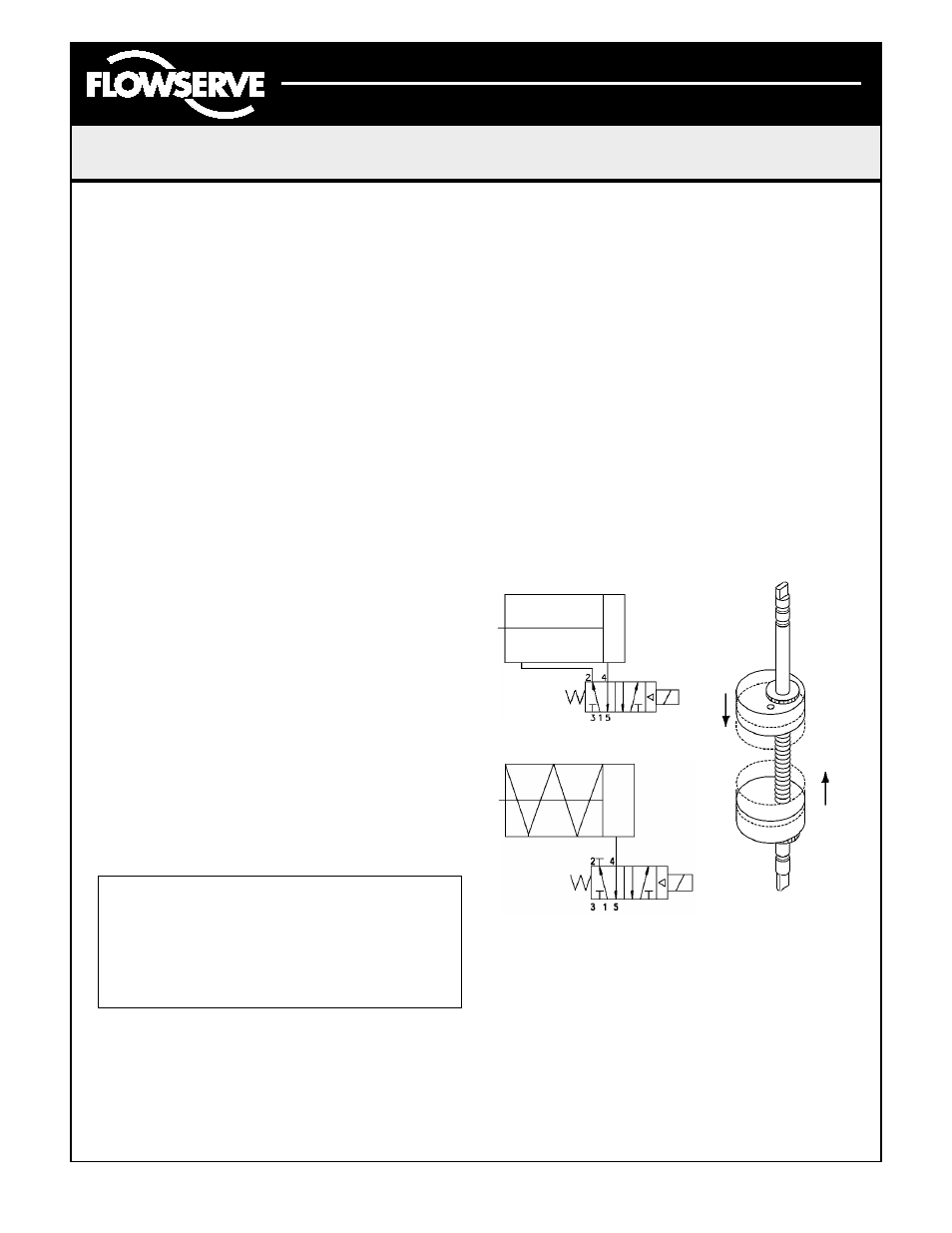Flowserve Resin Aviator User Manual
Resin aviator, Automax valve automation systems, Mechanical installation

AXAIM032-00 (AUTO-97) 3/02
Page: 1 of 2
© 2002, Flowserve Corporation, Printed in USA
Flowserve Corporation
765 South 100 East
1978 Foreman Dr.
Flow Control Division
Provo, Utah 84606
Cookville, TN 38501
www.flowserve.com
Phone: 801 373 3078
Phone: 931 432 4021
Automax Valve Automation Systems
Installation, Operation and Maintenance Instructions
Mechanical Installation
Installation is best performed with our NAMUR mounting
kits. These kits allow direct mounting of the Resin Aviator
™
shaft to the actuator pinion without a coupler. NAMUR
mounting kits will work with any actuator conforming to the
NAMUR standard for accessory mounting hole locations
and pinion dimensions. Simply attach bracket to actuator
and Resin Aviator
™
to bracket with the included fasteners.
The Resin Aviator
™
shaft features an integral alignment pin
which engages the tapped pinion hole. Automax also offers
a full line of non-NAMUR kits.
Electrical Connections
The Resin Aviator
™
features one (1) 1/2" NPT conduit entry.
The switches and pilot solenoid are pre-wired to a terminal
strip to simplify customer wiring connections. A wiring
diagram is included under the lid. Simply make desired
connections to the pre-wired screw terminal block. Secure a
grounding wire under the green grounding screw. Make
sure the solenoid control voltage is the same as the
solenoid electrical rating. For hazardous locations, U.L. and
National Electric codes require an approved sealing fitting
within 18 inches of the switch enclosure. Sealing fittings are
not required for Division 2 non-incendive applications. Open
conduit entries must be closed after installation using a
close-up plug approved for hazardous locations. Conduit
and plugs must engage a full five (5) threads.
Spool and Tubing Configuration
1. For spring return actuators, a 4-way spool valve is
provided with port #2 plugged. For double acting
actuators, the same valve is provided with no plugs.
Make sure the correct spool is selected before
installing tubing. (Note: the APS2 module can be
supplied on spring return actuators to purge the spring
chamber with supply air.)
2. Make sure all air pressure is removed before
installing tubing.
3. Attach tubing according to Figures 1 or 2 below,
depending upon application. Attach supply tubing to
Port 1 and use Ports 3 and 5 for exhaust.
4. To prolong actuator life use only clean, dry plant air.
Lubricated air is not required, although it is
recommended particularly for high cycle applications.
Caution:
To prevent ignition of hazardous
atmospheres, keep all cover bolts tight
WHILE CIRCUITS are live. Disconnect
supply circuit before opening.
Figure 1
Figure 2
Figure 3
Resin Aviator
™
Switch Setting
1. Rotate actuator to desired position.
2. Loosen five captive cover screws and remove lid,
turning slightly while lifting.
3. To adjust the limits, lift or depress cam against spring
to disengage splines and turn cam until switch
activates/deactivates as desired (Figure 3).
4. Release cam, assuring that the splines are engaged.
5. Clean base and lid flanges and replace lid on base.
Make sure wires are NOT caught between flanges, and
tighten captive screws.